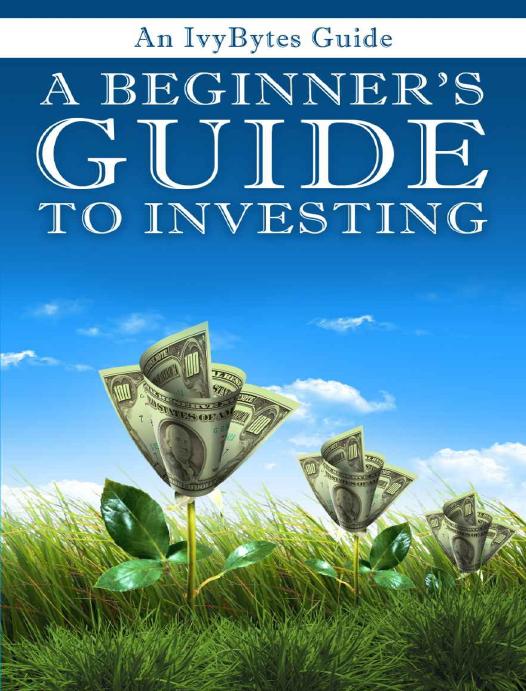A Beginner's Guide to Investing: How to Grow Your Money the Smart and Easy Way by Ivy Bytes & Alex Frey

Author:Ivy Bytes & Alex Frey [Bytes, Ivy]
Language: eng
Format: epub, azw3, pdf
Publisher: Ivy Bytes
Published: 2013-03-14T23:00:00+00:00
Why Beta Returns Trump Alpha Returns
From the above discussion, alpha returns sound quite appealing, since they are the result of skill and not subject to the overall fluctuations of the stock market. Yet there are three strong reasons that most investors should spend the vast majority of their time thinking about beta returns rather than alpha returns.
Beta returns are more important. Statistically, beta is a far more significant driver of returns than alpha. Study after study has indicated that most of the differences between real-world portfolios are a function of beta. Which particular stocks different portfolio managers own is far less significant than their overall exposure to the ups and downs of the stock market.
Beta returns are much easier to achieve. Trying to produce positive alpha returns is a losing battle for all but the most elite investors. Studies indicate that 97% of professional mutual fund managers are incapable of reliably beating the market (apart from luck) after deducting their fees. The top 3% may legitimately be capable of producing positive alpha, but they are hard to find. [11] Buying funds with the best track records is generally not a winning strategy in itself-many of these managers have merely gotten lucky. A few fund managers do seem to produce consistent alpha returns at a high and statistically significant level, but many of the cream of the crop are inaccessible to individual investors, or their funds have gotten too large by the time it is obvious that they have skill.
Beta returns are much cheaper to achieve. It is very easy to essentially buy the entire stock market and ensure that you get 100% beta returns by using a low-cost ETF (more on this later). The fees in popular ETFs can be as low as 0.05% of invested assets a year. By contrast, mutual funds that try to select stocks that will outperform the overall market are subject to multiple levels of fees, including a management expense, trading costs, and compensation to the salesperson or advisor that sells the funds. These fees can average 1.3% or more. Fees for hedge funds, which are less-regulated investment vehicles only available to high net worth investors, are even higher. Moreover, there is no certainty that any fund will actually produce positive alpha returns, even before its fees are deducted.
Download
A Beginner's Guide to Investing: How to Grow Your Money the Smart and Easy Way by Ivy Bytes & Alex Frey.azw3
A Beginner's Guide to Investing: How to Grow Your Money the Smart and Easy Way by Ivy Bytes & Alex Frey.pdf
This site does not store any files on its server. We only index and link to content provided by other sites. Please contact the content providers to delete copyright contents if any and email us, we'll remove relevant links or contents immediately.
Rich Dad Poor Dad by Robert T. Kiyosaki(6612)
Pioneering Portfolio Management by David F. Swensen(6289)
How To Win Friends and Influence People by Dale Carnegie(4504)
The Money Culture by Michael Lewis(4198)
The Dhandho Investor by Mohnish Pabrai(3759)
The Wisdom of Finance by Mihir Desai(3735)
Liar's Poker by Michael Lewis(3441)
Fooled by Randomness: The Hidden Role of Chance in Life and in the Markets by Nassim Nicholas Taleb(3108)
The ONE Thing by Gary Keller(3066)
The Intelligent Investor by Benjamin Graham Jason Zweig(3036)
Mastering Bitcoin: Programming the Open Blockchain by Andreas M. Antonopoulos(3035)
The Psychology of Money by Morgan Housel(2986)
Rich Dad Poor Dad: What The Rich Teach Their Kids About Money - That The Poor And Middle Class Do Not! by Robert T. Kiyosaki(2952)
Investing For Dummies by Eric Tyson(2948)
How to Day Trade for a Living: Tools, Tactics, Money Management, Discipline and Trading Psychology by Andrew Aziz(2944)
How to Win Friends and Influence People by Dale Carnegie(2912)
Market Wizards by Jack D. Schwager(2697)
How to Pay Zero Taxes, 2018 by Jeff A. Schnepper(2646)
Zero Hour by Harry S. Dent Jr. & Andrew Pancholi(2645)
